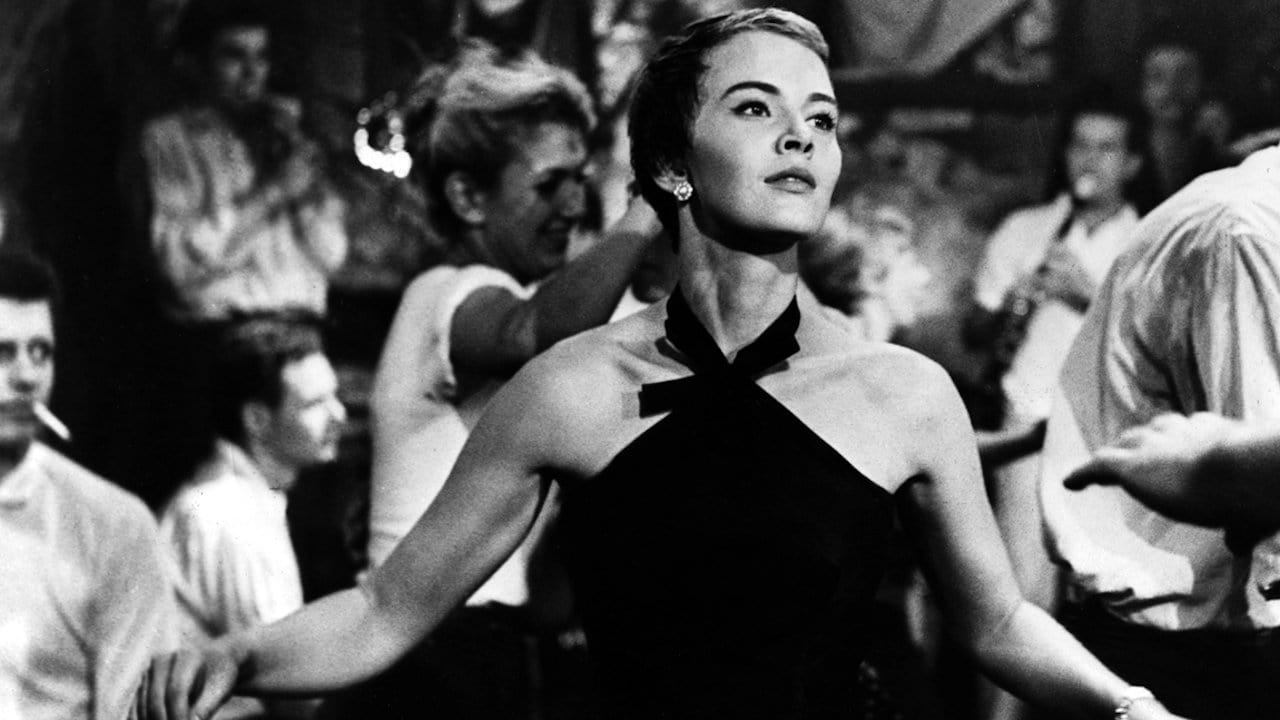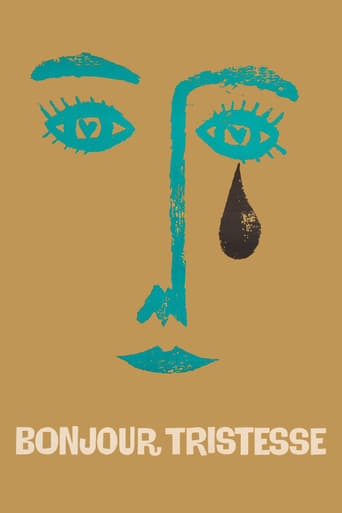

a novel. a splendid cast. French Riviera. and the steps from present and past. at first sigh, it is the film of Jean Seberg. her look, her voice, her childish revenge with tragic result. in fact, the great virtue of film is the wise measure. and the motif who transforms the novel of Sagan in a fascinating story about egocentric and selfish game of survive of two lonely people. David Niven seems be the perfect choice for become Raymond. the easy manner to define life, the never end holiday, the sarcasm and kind, mixed in a seductive manner are pillars for a great performance. the essential ingredient of the force of film remains the work of Deborah Kerr. in her desire to become a kind of Pygmalion, the fall becomes key of film. the desire to transform a chaotic Paradise in normal life is important piece of a great story about a beautiful story about the meanings of life.
... View MoreThe trio of David Niven, Deborah Kerr, and Jean Seberg star in Otto Preminger's Oedipal drama Bonjour Tristesse. With those Givenchy gowns featured, how did Audrey Hepburn miss this film?Based on the Francoise Sagan novel, this is one strange tale of a playboy father, the daughter who adores him and the woman who threatens to come between them. Niven is the playboy who must have inherited his wealth because he doesn't look like he worked a day in his life. At one time he was married and had Seberg with his late wife. Anyway she travels with him and enjoys life and its vices the same way he does.It's all right when Niven's fooling around with Mylene Demongeot, the latest in a string of flings, but when old flame Deborah Kerr shows up and wants to marry Niven, that puts Seberg off.Truth be told Kerr had no right acting like a stepmother before the wedding. Still it didn't justify what Seberg set in motion that ends in tragedy.The novel is French based of course and I think the French should have filmed it. I think Otto Preminger was just the wrong director for this kind of material. Geoffrey Horne plays Seberg's boyfriend and Martita Hunt is his mother round out a stylish cast. But with only one actual person of French nationality among the main cast. that was a big mistake.
... View MoreFirst, one of your commentators remarked that the Riviera looked great. I do not believe Preminger filmed it there. The site was probably Lake Tahoe, with a few shots taken in the south of France, of course, to add authenticity. Interiors were all made on Hollywood sound stages. The book is far more subtle and carefully crafted than the screenplay. Near the end, when Anne discovers Raymond and Elsa together, she overhears him saying several deceitful and insensitive remarks, remarks that portray him as shockingly depraved. The book does not reveal those remarks to us; we continue to think of Raymond as, well, yes, promiscuous, but basically charming and decent.
... View MoreAs Andrew Sarris said, "Preminger changes trash into art". Yes, and this film is the best proof. From a very dated novella from Francoise Sagan, we get a simple, subtle and elegant film. THE SUNNY PAST: pink, blue and yellow colors (the shirts and bathing costumes, the sea "like velvet" as Cecile says), the umbrella falling and hiding Cecile and her boyfriend, the geometric lines of the house with its wonderful environment, the pine trees (you can almost smell them). Everything as the background of a drama that will soon burst. THE BLEAK PRESENT: Grey Paris, the picture gallery, the "existentialist cave", Concordia Square, Les Halles, the luxurious apartment where is hidden a painful souvenir, and, above all, Cecile makeup in front of the mirror. Juliette Greco sings: "My smile is void of loving/my kiss has no caresses/I'm faithful to my love/my bittersweet tristesse". Very god performances from Jean Seberg and David Niven (she is here much better than in "Lilith"). Cinematography: Georges Perinal, music: Auric (remember the Cocteau films), credits: Saul Bass.
... View More